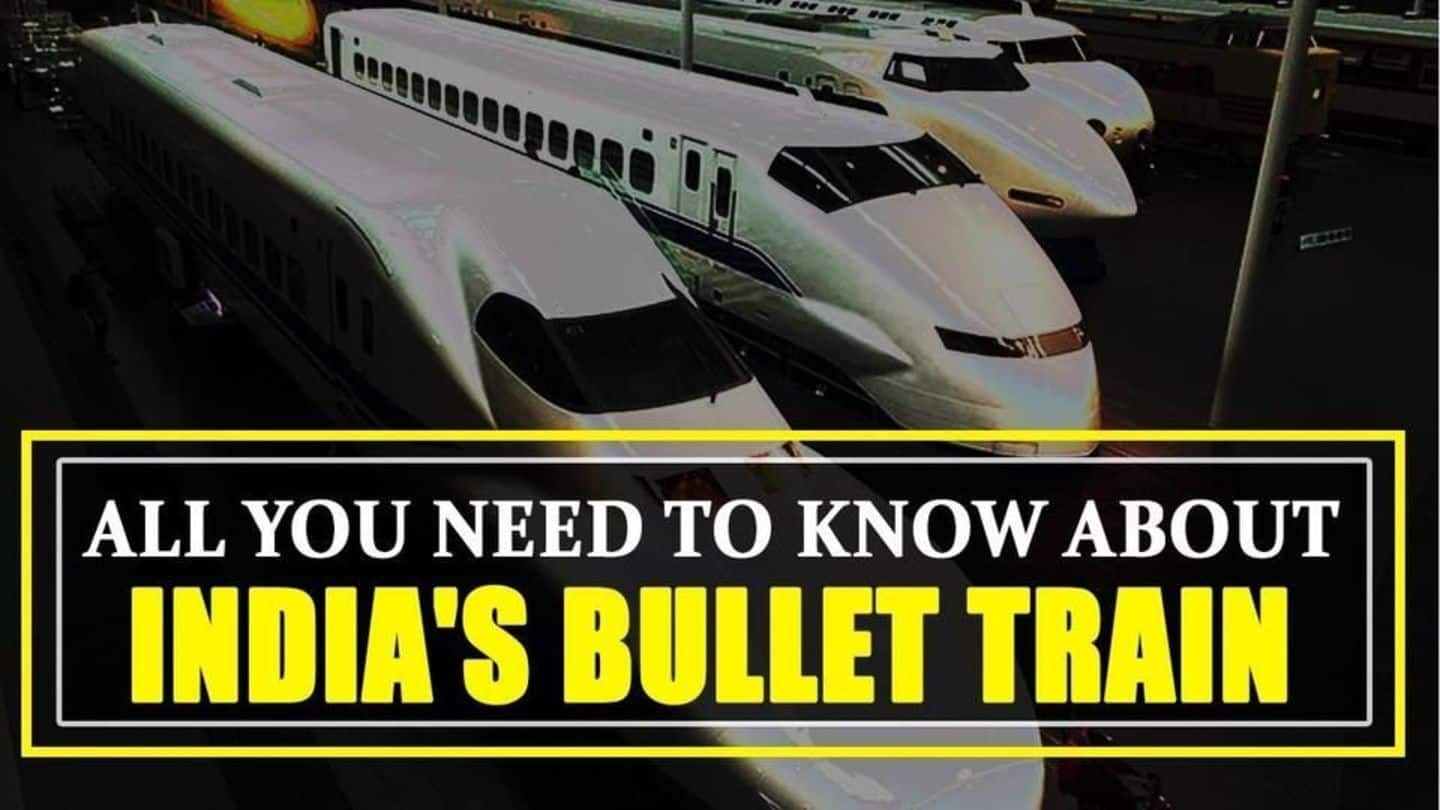
The revolutionary Mumbai-Ahmedabad bullet train: All you need to know!
What's the story
PM Narendra Modi and his Japanese counterpart Shinzo Abe have laid the foundation stone for the ambitious bullet train project in Ahmedabad. This project, known as the Mumbai-Ahmedabad High Speed Rail (MAHSR), is set to benefit India in many ways. It might potentially change the face of train travel in the country. Find out all about this exciting new project here.
Benefits
To start with, what does this project mean for India?
Japan will provide India a soft loan of Rs. 90,000cr at 0.1% interest for 50 years. This is the first time that such a project is being funded on such favorable terms. The project will ensure local production of components and technology transfer. High speed is the USP: it might enable Railways to win consumers who prefer air plane due to the time involved.
Luxury
So what'll be so great about a bullet train ride?
Many things. For one, the 508km route will have India's longest underground tunnel: 7km of it will be under the sea! With an average speed of 320kmph and maximum speed of 350kmph, travel time between Mumbai-Ahmedabad will be cut down by up to five hours from the current seven hours. Sound-absorbing material will be used to make the trains noise-free. Talk about comfort!
Features
How many people will be able to travel in it?
Japan's Shinkansen E5 series bullet trains, which have been chosen for the project, can accommodate 750 passengers in 10 coaches. Initially, 35 bullet trains will be operational for 70 sorties daily. Passengers will get access to exclusive male-female washrooms with hot water and triple mirrors. Wheelchair-bound people will have two extra-spacious toilets. There will also be multi-purpose rooms for breastfeeding and sick passengers.
Information
Will such high-end amenities come at the cost of safety?
The government says no. According to Japan, Shinkansen trains have a delay record of less than a minute with zero fatality. To ensure safety, India will also acquire the technology for disaster prediction and prevention.
Cost
So do these trains have any drawback?
The cost might just be a discouraging factor. The entire project has been estimated to cost Rs. 1,10,000cr. Japan is providing Rs. 90,000cr of it as a soft loan. To cover up, the ticket prices will be higher than normal railway fares. Media reports have estimated ticket costs between Rs. 2,500-5,000. However, railways officials said it will be comparable to Rajdhani Express AC-2 tier.
Options
Could we have spent the bullet train budget better?
The day India inaugurated its first bullet train project, it witnessed its sixth derailment in less than a month. The project costs 75% over the Railways' 2018 capital expenditure. If the amount was spent on strengthening existing infrastructure, it could have prevented many tragedies. Now that the ambitious project is being implemented, the government should ensure it doesn't cause accidents due to avoidable factors.